Spicy Mango Lemonade
Sometimes a product just feels like it was made for only you. Every bit of copy on this tells part of the story. Not a wasted word.
“TRADER JOE’S®”
Quality, let’s see what Joe has today.
“SPICY”
I’m listening…
“MANGO”
Love ‘em. Goes very well with spicy.
“LEMONADE”
Refreshing.
“PERISHABLE, KEEP REFRIGERATED USE WITHIN 5 DAYS AFTER OPENING”
Fresh.
“SHAKE WELL BEFORE USING”
There will be pulp.
—
They don’t have to say it tastes good, fresh, or anything. It’s in there. Plainly.
This isn’t turbocharged or all-in-one.
No robust, modern AI.
It won’t 10x your output.
Review: im not surprised lived up to the expectation. I’m not surprised that it exceeded my expectation. Because it didnt make any bombastic marketing claims. It just plainly states what it is.
I couldnt love it more.
What’s the last product that made you feel that way?
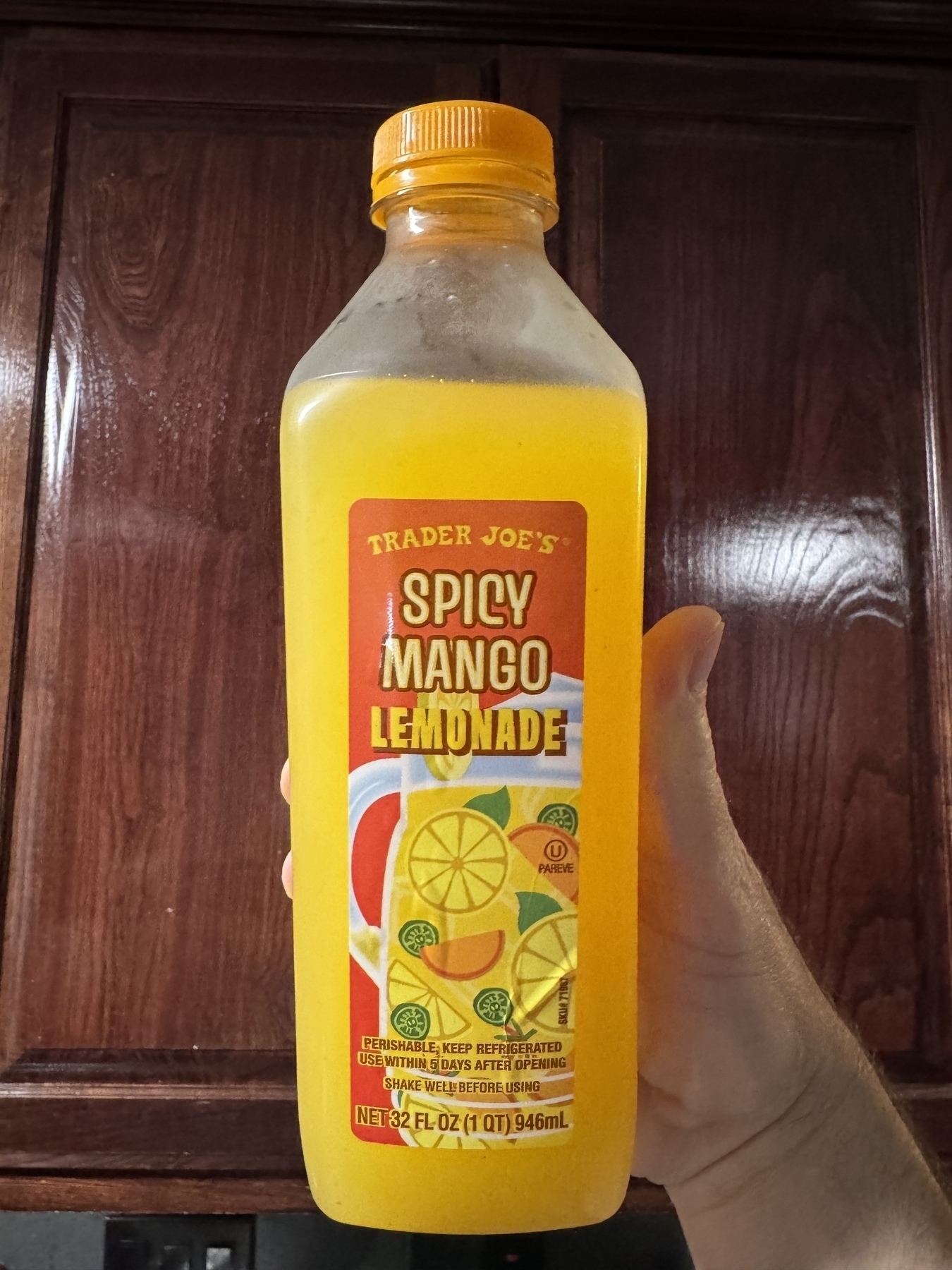
The Shopify Memo
Everyone’s got a hot take on the infamous Shopify memo… and most of them are missing the point.
It’s not about replacing employees.
It’s about waking them up.
You can’t wait this one out.
You’ve probably worked with someone who…
- Still can’t figure out Slack.
- Thinks “the cloud” is a scam.
- Needs a meeting before the meeting about the meeting.
- Has never Googled their way out of a problem.
- Can’t use half the tools the rest of the team relies on.
That’s not a joke. Those folks are real… and everywhere.
And let’s be honest: if they haven’t caught up to 2012, they’re definitely not using AI or LLMs to get things done in 2025.
This isn’t about age. It’s about mindset. Comfort. Complacency.
If your use of AI starts and ends with “write me a blog post,” you’re already falling behind.
It’s not about the memo. It’s about the mirror.
How to Work with Me
This document outlines how I prefer to work and interact with others.
Whether you report to me, work alongside me, or lead me, this is for you. My goal is to build clear, productive, respectful relationships by setting expectations transparently.
Central to my approach is the concept of operating at three levels:
- Street view: Detailed, tactical execution.
- Map view: Strategic alignment and coordination.
- Satellite view: High-level strategic vision and context.
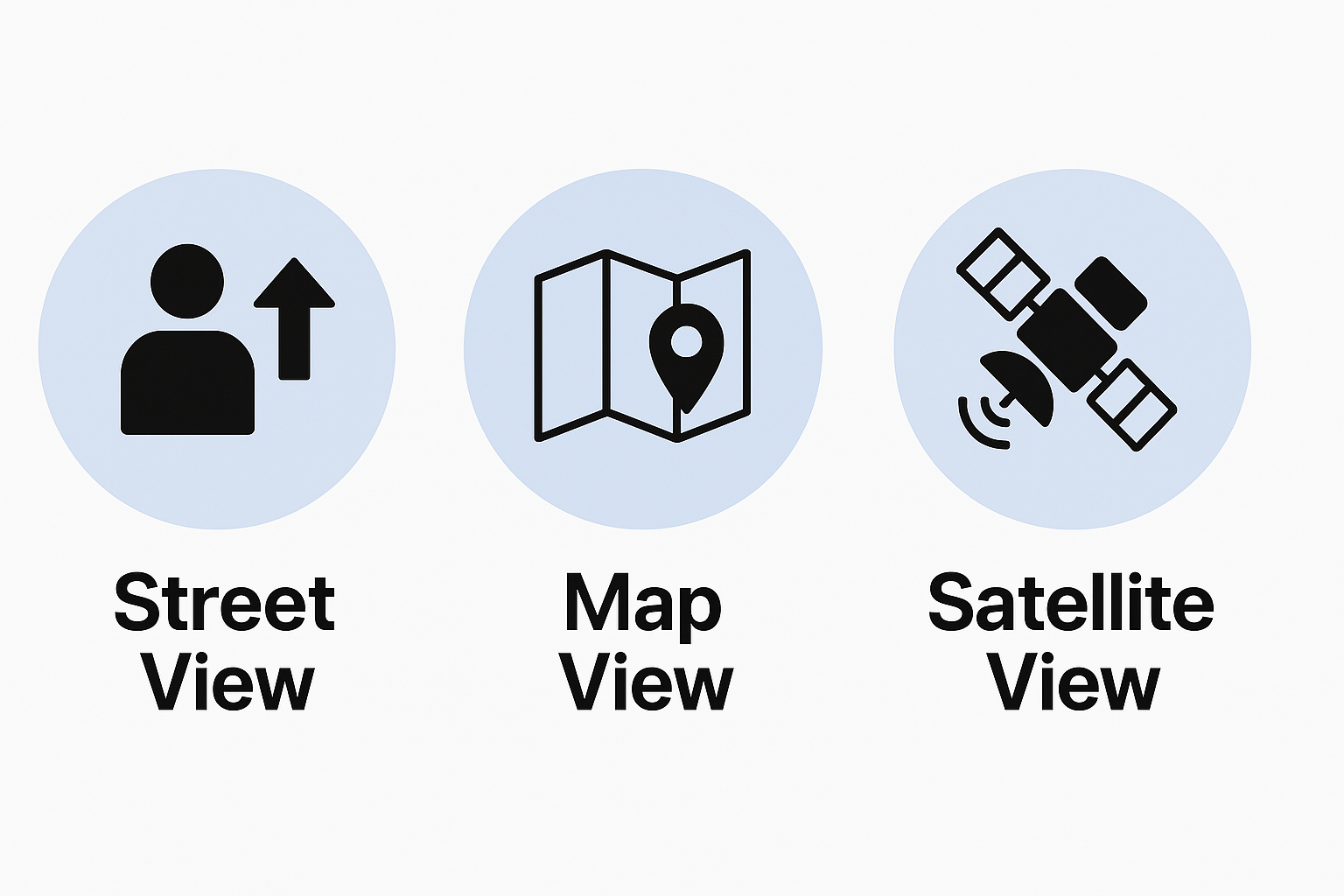
We work best when we align clearly on the “Map view,” connecting detailed execution with strategic vision.
Guiding Principles
- Transparency over silos: Communication belongs in public channels, documents, and shared wikis - not hidden conversations.
- Bias toward action: Make decisions quickly. Recognize “two-way doors” (reversible) and “one-way doors” (irreversible) decisions.
- Context is everything: Provide clear context upfront (“Map view”) to ensure strategic alignment.
- Continuous feedback: Early, frequent, and constructive feedback loops enable our best work.
- Customer empathy: Prioritize customer experience over internal efficiency. Do what’s right, not just what’s scalable.
- Trust & autonomy: I trust you. My role is to coach, support, and empower you.
- Respect & kindness: Always treat each other with excellence, kindness, and respect - especially in moments of conflict.
- Explicit about trade-offs: Clearly document what we choose not to do, along with why and when it may be revisited.
Communication Preferences
Medium matters. If it’s urgent or I’m blocking your progress, text my cell anytime. Otherwise, lean into asynchronous methods like Slack or email. If I message you off-hours, don’t assume urgency–I’ll explicitly say if it’s critical.
Slack use: Public channels and threaded conversations strongly preferred. Slack DMs are reserved only for personal or sensitive matters.
Calendar transparency: My calendar is always updated and available. Please check it when scheduling meetings or calls. Personal events (like family obligations) are clearly marked.
Meetings: Aim for 25-minute meetings, not 30, to prevent back-to-back scheduling. Meetings running long indicate planning or facilitation issues. Proactively schedule deep-work sessions.
Quick calls and huddles: Use quick calls if discussing verbally is more efficient. Always close Slack threads afterward with brief decision recaps. Keep conversations short (under 10 minutes).
-
If You Report to Me:
Text or call if you’re blocked or need immediate clarity. Always feel empowered to request context. I’m here to help. -
If You’re My Peer:
Feel free to proactively reach out anytime. Let’s align quickly and clearly if there’s potential misalignment or shared blockers. -
If You’re My Leader:
I will proactively update you clearly on key issues. Expect open, timely updates to ensure alignment and clarity.
Collaboration Expectations
Common meeting ground: Let’s align detailed insights (“street view”) with overall strategic context (“satellite view”) through the “map view.”
Transparency and proactive communication: Share work early, frequently, and openly. Address blockers immediately through Slack. Daily stand-ups are not an expectation but may help for complex projects. Avoid relying solely on them.
Decision ownership: Every critical decision requires a clear owner. Step up proactively if ownership isn’t clear.
Documentation discipline: Continuously update documentation. Clearly document unfinished tasks and explicit trade-offs.
Conflict handling: Healthy conflict is expected and encouraged. Personal conflicts should be resolved privately and respectfully.
Project status clarity: Maintain a single source of truth (wiki, shared document, or project management tool). Provide proactive updates publicly if at risk.
-
If You Report to Me:
Clearly define decision ownership and speak up proactively if you’re blocked or need clarification. Expect clear coaching and guidance. -
If You’re My Peer:
Let’s proactively manage shared responsibilities, transparently document decisions, and collaborate openly to resolve any conflicts or issues. -
If You’re My Leader:
I commit to providing clear documentation and proactive status updates, ensuring you have clarity about any trade-offs and project statuses.
Feedback Style
Direct, continuous feedback: Expect regular, direct feedback publicly–always constructive, never personal. Lack of feedback means you’re likely not sharing early or often enough.
Negative feedback privately: Sensitive or critical feedback will be delivered privately, respectfully, and swiftly.
Receiving feedback: I welcome your clear, direct feedback and coaching. I’m human and will make mistakes–please help me become a better leader by coaching me openly and directly.
Managing up: I commit to providing clear, structured context proactively, ensuring my leader is consistently informed and aligned.
Feedback timing and frequency: Provide and receive feedback early and frequently. Celebrate successes to replicate positive outcomes.
-
If You Report to Me:
Provide me feedback openly and frequently–coach me on how to lead you better. Expect frequent, clear, and constructive feedback from me in return. -
If You’re My Peer:
Offer feedback proactively and openly; let’s help each other improve continually and transparently. -
If You’re My Leader:
I appreciate clear, direct feedback. You can expect the same clarity, openness, and frequency from me to ensure strategic alignment.
Work Habits
Dynamic scheduling: My schedule adapts to family commitments. Reserve blocks for uninterrupted deep work.
Decision-making: Blend intuitive and data-driven approaches, quickly identifying decision reversibility.
Energy and productivity: Workouts or outdoor activities (biking, hiking, etc.) often fuel my best thinking.
Essential habits: Writing and voice recordings clarify thoughts. Shorter, clearer communications preferred.
Protecting deep work: Actively use focus modes. Quarterly three-day weekends help me recalibrate priorities.
-
If You Report to Me:
Protect your deep work time proactively. Communicate your schedule clearly, and know I’ll respect and support it. -
If You’re My Peer:
Let’s respect each other’s productive time and schedules–clarify and protect our shared or collaborative spaces. -
If You’re My Leader:
I will proactively manage my schedule to align effectively with our strategic priorities. Clearly communicate expectations around critical availability.
Personal Insights
How I show up: Here to have fun, coach, learn, and achieve great outcomes together. If overwhelmed, let’s talk openly.
Motivation: Your expertise inspires me. Family, kids, dogs, and outdoor activities deeply motivate me.
Misunderstood strengths: Deep passion for copywriting and customer empathy. Sometimes impactful work isn’t scalable, but it’s right.
Systems thinker: Enjoy creating repeatable processes. Processes must be clear before delegating.
Personal philosophy: Prioritize customer empathy over mere efficiency.
One personal thing to know: I’ve made mistakes and learned from each. I’m here to learn from you. Trust and appreciate your work deeply.
Fishing without bait .
Product marketers and copywriters often talk about “the hook”. But never disclose the real secret: “the bait”. 🎣
In today’s “attention economy” you have to have something that gets their attention. And that’s the problem.
No, I literally mean “the problem”.
If you aren’t highlighting a PROBLEM (with a capital P) that you intend to solve at the very top of your messaging framework, you might be fishing without bait.
There’s more than one way to release and launch a new product… but release is not equal to launch.
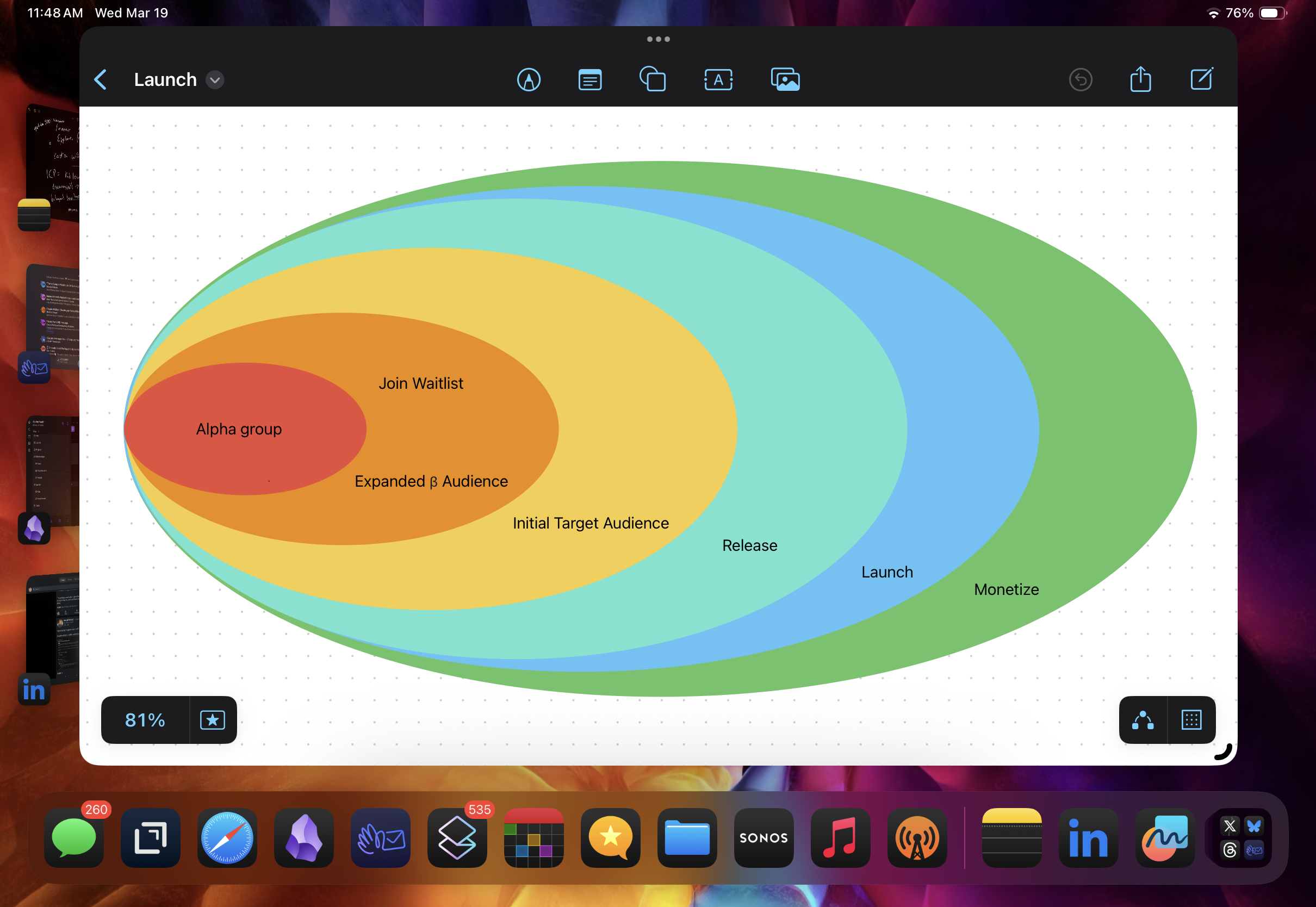
Yesterday was five years, no booze. I’ve never felt better.
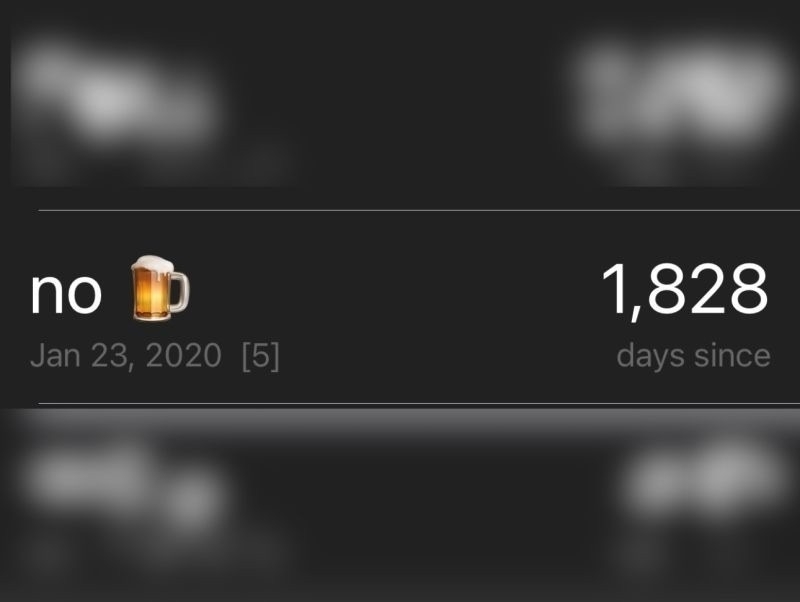
Hugh Howey is the author of the books the show Silo is based on. A couple of thoughts on this.
He’s out there in the conversation. He’s listening. He’s engaging. He’s SELLING.
But he’ll never know if that person watched. There will be no first or last touch attribution attributed to this one interaction.
He is out there operating in TRUE founder mode. Doing what he knows works, without the need to justify it.
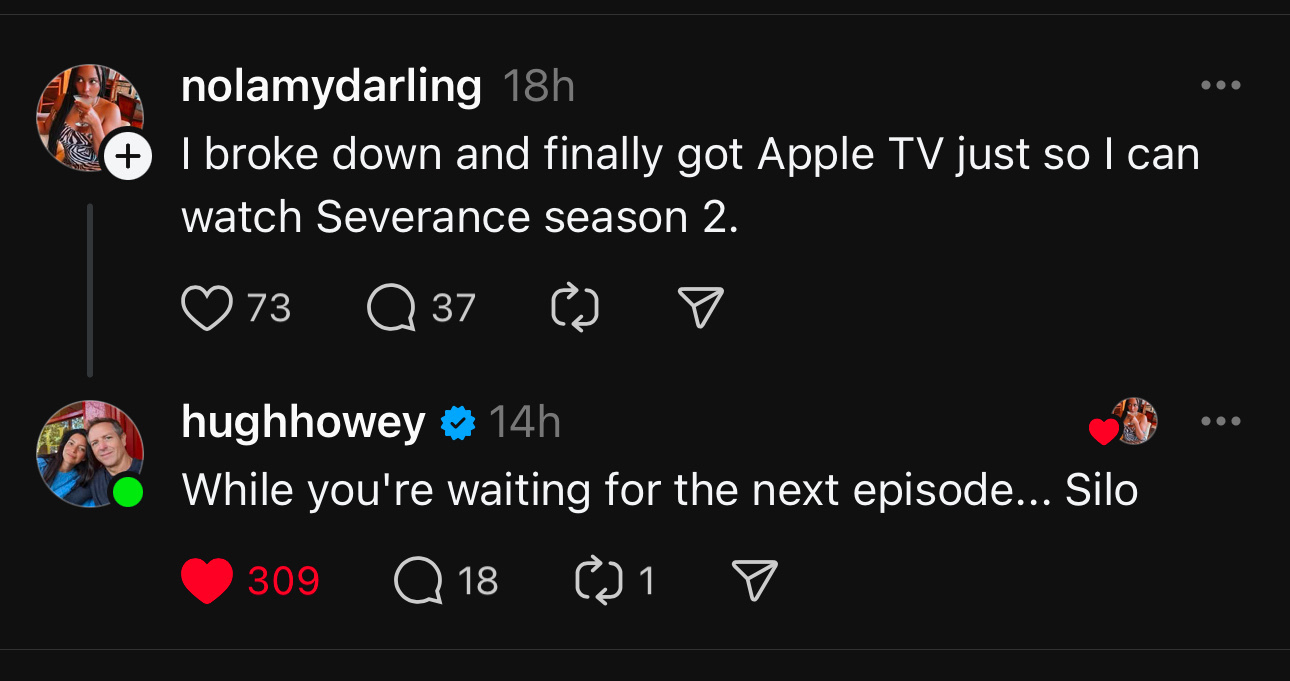
“Agent” is the most buzzy word in tech right now. That usually means it won’t age well. The term, not the idea. When marketing AI products or features. I think it’s ok to talk about things as an agent, but I wouldn’t name the whole product around that any more than I would call something “Blank AI”.
What are some other good words that normal people would recognize?
- Assistant
- Sidekick
- Copilot (although Microsoft really ran with this)
What are other words like this you’ve seen?
the golden age of opinionated software
I believe there is a shift happening in software. For years, the promise was customizability—vendors built flexible tools, and customers spent time and money tailoring them to fit their workflows.
But things are changing. It’s getting easier and cheaper to build personalized software, and we’re seeing a growing demand for what I’d call “opinionated software.”
Here’s what I mean by that…
Opinionated software doesn’t just give you tools; it gives you a process to adopt right out of the box.
Why does this matter? Because the old model—buy a tool, hire a team to customize and implement it, and hope your team adopts it—just isn’t sustainable anymore. Too many companies invest in tools they never fully use.
Instead, more users want ready-made solutions. Tools that ship with templates, playbooks, or best-practice workflows baked in. They want to get value on Day 1, not after a six-month implementation and an expensive consultant to implement it. (I’ve been one of those consultants, so I don’t take this lightly.)
I’ve been thinking a lot about this as I build my own nightstand and weekends software project for product marketers (I posted about this on Monday). The feedback is clear: people don’t just want tools—they want guidance on how to use them.
In many ways, I think we’re entering the golden age of opinionated software. It’s what companies like Basecamp have been doing for years—offering strong opinions about how work should get done, not just handing users a blank slate.
I’m curious to explore more of these workflows. What other examples of opinionated software do you love? Let’s keep the conversation going.
The Good Better Best Matrix
Dell tossed out all its old naming conventions for a “Good Better Best Matrix”.
The Verge doesn’t like the names, but I do. It simplifies the decision-making and narrows you down much faster than feeds and speeds.
Student? Ok, good, better, or best.
Do you need a laptop for work? Ok, good, better, or best?
Need one for extreme video editing? Ok, good better, or best?
These are NINE SKUs. If they were all side by side, a segment of people would likely give up due to indecision.
What do you think about this positioning?
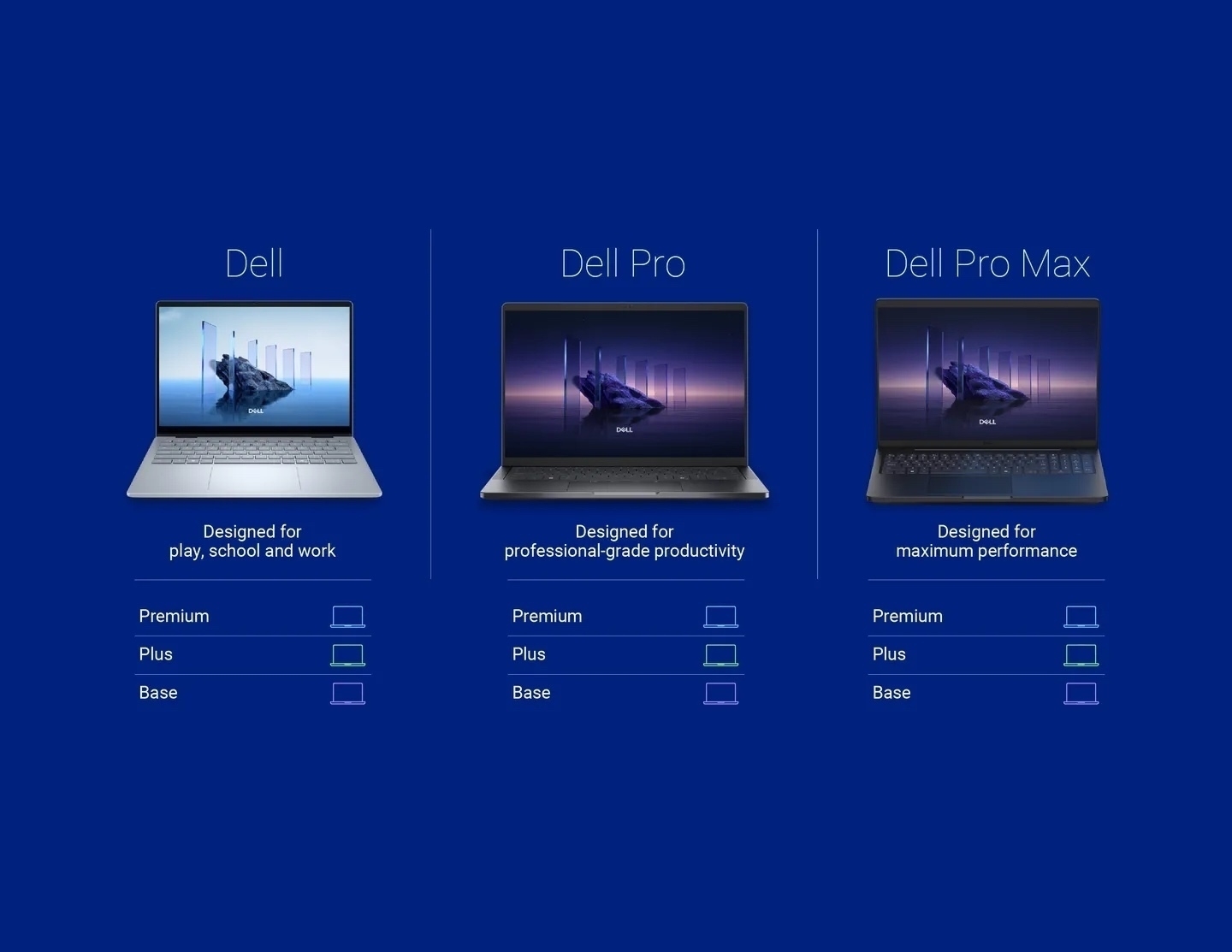
Positioning.

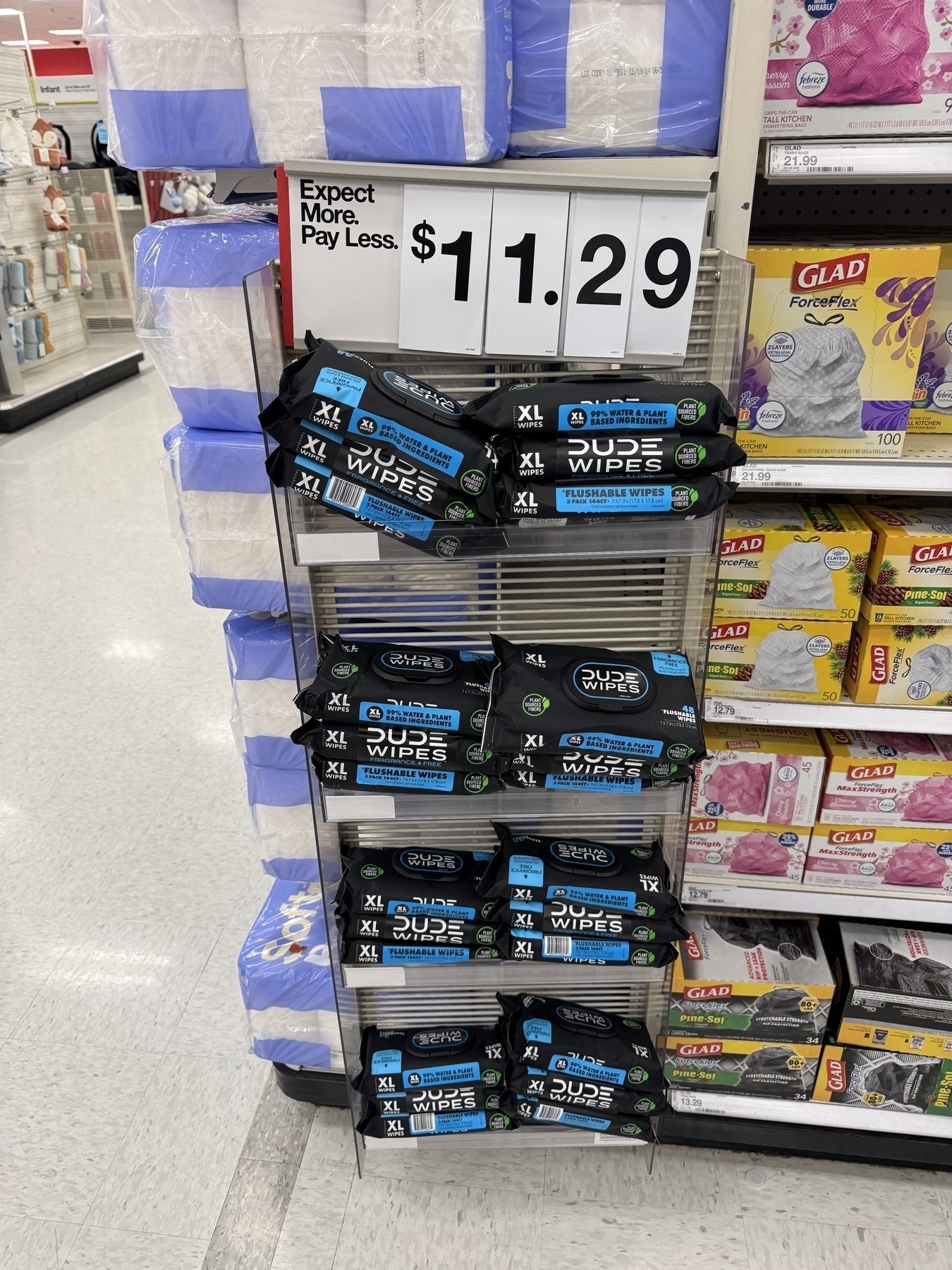
Got the annual briefing from the big guy.

Prediction: in 2025, we’ll see more B2B websites implement a behavior based collection of relevant materials for the visitor on a “For You” page.
Looks like I’m going to be rich.
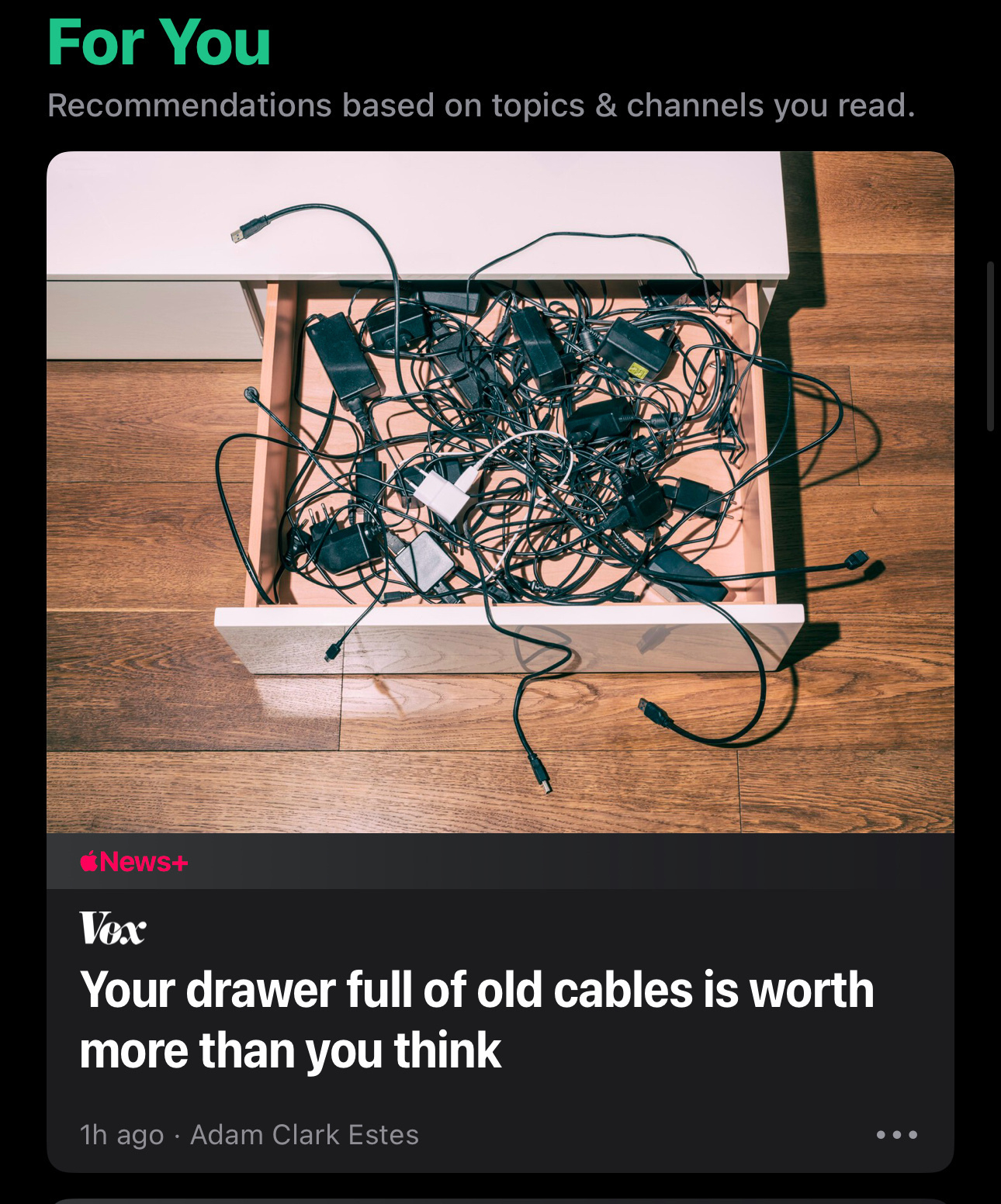
Super excited about my evening meeting.
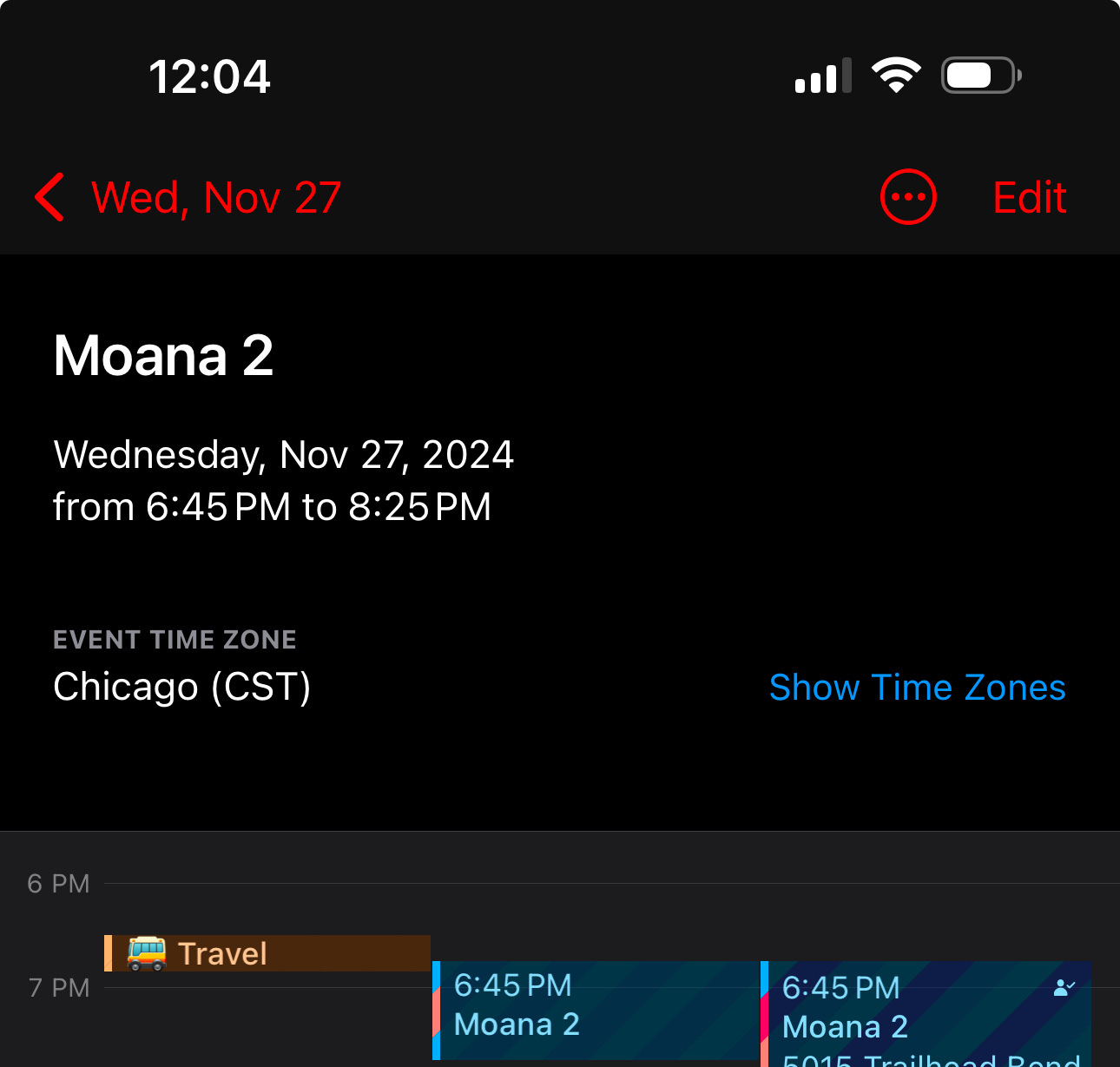
I spent many hours researching office chairs in 2020. I didn’t want to spend a thousand dollars, but wanted to get a nice one.
I went with this and have been VERY happy. I added the optional headrest on about a year ago.
It’s on sale right now. No affiliate link, just sharing a great product.
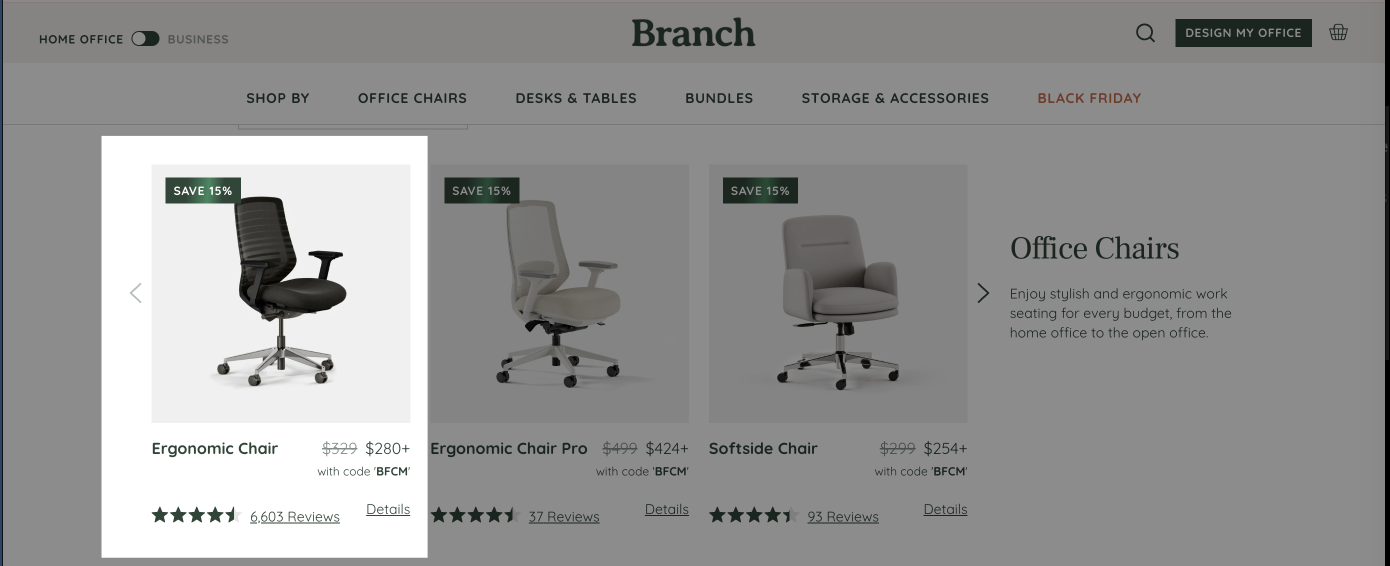
Progress is slow, but steady if you keep at it.
Most people overestimate what they can do in one year and underestimate what they can do in ten years.
My favorite quote by Bill Gates.
Today is the biggest day of the year for Apple software. It’s called #WWDC and they are about to lay out all the updates. I have some thoughts on how they handle the AI story.
Apple had a great brand for “Intelligence” that they’ve let flounder a bit. GENIUS.
Remember “Genius Playlists”? They were an early version of machine learning and was described this way:
“You can use Genius to have iTunes play songs from your library that sound great together. “
I wouldn’t be surprise if they just use Siri for the brand, but I could also see them using “Genius” to inject into different areas of the products.
I have a lot of thoughts on exactly HOW they’ll integrate LLMs practically for helping a user navigate their day faster. But I wonder that you think? What are we going to hear?
#WWDC24
Change in the world of AI
Hey there. I want to share some thoughts I’ve had this week on change. These are based on things I’m seeing in the market and how quickly the world is changing due to AI.
You can view the video below.
I actually used a tool to help me summarize the thoughts I share in this video for your notes as well below.
Recent Events
OpenAI Event
- OpenAI had an event showcasing their updated ChatGPT model.
- They demonstrated live demos and took questions from the audience.
- The event was not highly produced but felt very tangible and immediate.
- Some features are not yet live to the public but were demoed live.
Google I/O
- Google discussed future updates to their AI and large language models.
- The keynote was more about forecasting and imagining future possibilities.
- The contrast between the two events was stark; OpenAI felt more immediate and actionable.
Key Takeaways
Tangibility of OpenAI vs. Google’s Forecasting
- OpenAI’s event felt more tangible and actionable.
- Google’s keynote was more about future possibilities and less about immediate changes.
Implications for Business Models
- Google’s upcoming changes to search results will impact business models significantly.
- AI-generated content will be more prominent at the top of search results.
- This shift will affect businesses that rely on Google for traffic.
Need for Change
- Businesses will need to adapt to the new search dynamics.
- Building direct relationships with the audience will become crucial.
- It’s not just about collecting emails but delivering real value and building a positive brand image.
Challenges Ahead
- Websites that rely on traffic from Google will face challenges.
- Direct relationships with the audience will be more important than ever.
- Traditional channels like Google Ads and SEO will still be relevant but will require new strategies.
Personal Reflection
- These changes have me thinking about how I need to adapt my work, products, and personal projects.
- It’s important to stay ahead of these changes and think about new approaches.
Final Thoughts
- Change is coming, and it’s essential to be prepared.
- I’m curious about what others think will change with these new updates and changes to large language models and search results.
I’ve been using this guide on how to make oven bacon for many years. Thank you to Dan Benjamin.
“MAKE PERFECT CRISPY BACON EVERY TIME“
Read more: Bacon Method ➚
